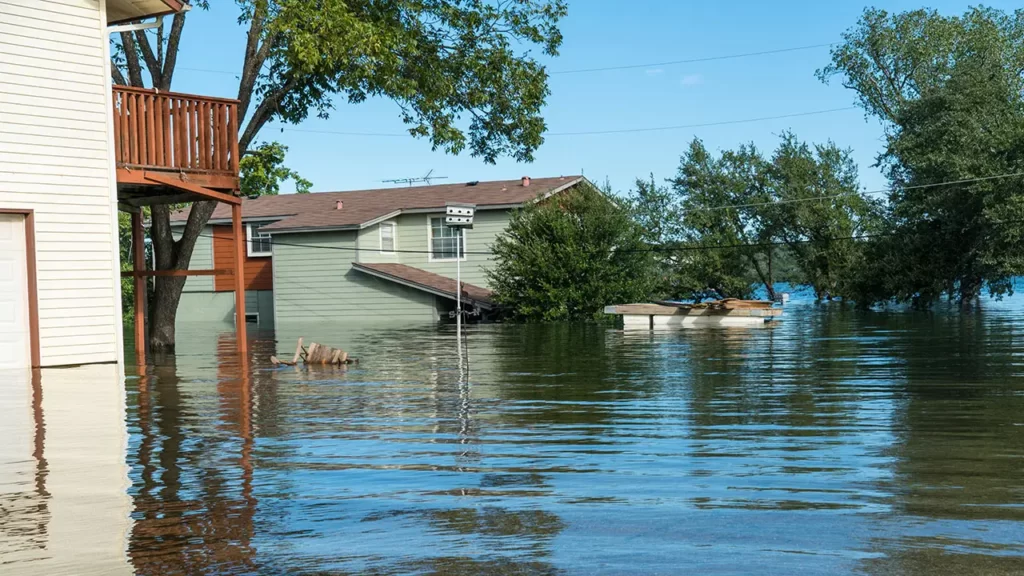You see it on the news all the time: sewage spills and flooding. It’s terrible for this to happen in your neighborhood, but what can you do if this ever happens in your neck of the woods? Keep reading for some tips that will help you prepare for disaster!

What is Sewage?
Sewage is wastewater or “bodily waste,” including water from toilets, sinks, showers, and tubs. Although sewage systems can handle many types of wastewater using a network of pipes that connect to treatment plants, sometimes a spill happens when too much water enters the system too quickly. This can happen during periods of heavy rainstorms or when there’s an intense period of snowmelt.
What is Flooding?
Flooding is different from an overflow or spill. Flooding occurs when rainwater soaks the ground and overtops the foundations of buildings, roads, and other structures. It can also happen when snowmelt overtakes the landscape’s ability to absorb water. Floods are hazardous since they can happen quickly and without warning, and rushing floodwaters often go undetected until it’s too late.
Preparation Tips: What You Can Do Ahead of Time
The best way to prepare for a sewage spill or a flood is to determine your evacuation options beforehand. In areas prone to flooding, some homeowners may consider relocating. If you live in a flood-prone area, you should get estimates for the costs of purchasing property and flood insurance.
Discuss what to do if your house floods with your local government agency and the names of companies that specialize in providing emergency services after sewer spills or floods.
Discuss any special medical needs with your family physician in advance.
Research local evacuation routes and shelter options in advance. Make sure each household member knows where to go and what they will do there during an emergency. Discuss what to do if your house floods with your local government agency and the names of companies that specialize in providing emergency sewer repair services after sewer spills or floods. Discuss any special medical needs with your family physician in advance.
Prepare your home: Keep children out of harm’s way while repairs are being made to a sewage system. Keep away from equipment that might drip or spark during work, such as electric power switches and water heaters. Doing this protects yourself, your fellow workers, and the public from possible injuries.
Keep children out of harm’s way while repairs are being made to a sewage system. Keep away from equipment that might drip or spark during work, such as electric power switches and water heaters. Doing this protects yourself, your fellow workers, and the public from possible injuries. Prepare your family: If you have a portable toilet on the property, ensure it is emptied and stored during work. To prevent contamination of domestic water sources (like outdoor swimming pools), ensure that portable toilets are disinfected before being used again. Also, remember that if you have a septic tank, it might need emptying before you can use the toilet again.
If you have a portable toilet on the property, ensure it is emptied and stored during work. To prevent contamination of domestic water sources (like outdoor swimming pools), ensure that portable toilets are disinfected before being used again. Also, keep in mind that if you have a septic tank, it might need waste removal before you can start using the toilet again. Prepare your home: Before work begins, turn off the main water valve in your house and ensure there are no leaks in the plumbing system. Turn off any electrical devices and turn off any gas appliances.
Before work begins, turn off the main water valve in your house and ensure there are no leaks in the plumbing system. Turn off any electrical devices and turn off any gas appliances. Prevent flooding in your yard: Watch for areas where the soil is getting washed away by water. If you notice that these areas are getting washed out, make sure you plant a high-water-retention (hurricane) grass or tree to help protect your yard and prevent further damage.
Watch for areas where the soil is being washed away by water. If you notice that these areas are getting washed out, make sure you plant a high-water-retention (hurricane) grass or tree to help protect your yard and prevent further damage. Prevent flooding on your property: Make sure there are no downed trees in the area where work is being done on the sewage system and no water leaks around the system itself.
Please make sure there are no downed trees in the area where work is being done on the sewage system, as well as no water leaks around the system. Prepare your workplace: Turn off any valves you don’t need while repairs are being made, and ensure you’re out of the way during this time.
Turn off any valves you don’t need while repairs are being made, and ensure you’re out of the way during this time. Prevent flooding on your property: Make sure nothing is blocking the main sewer line, especially near water or a lake. Ensure there are no leaks in the system, and watch for areas where the soil is getting washed away.
How to Spot a Flood or Sewer Break
You can do some things to prepare for a flood or sewer break. First, keep your senses aware of changes in your environment. During the rainy season, you should be able to hear differences in rainfall patterns. If it’s raining harder or making different noises than usual, you’ve probably got something to worry about. It would help if you also looked around at any area near your home where there’s water pooling on the ground—this can indicate that a sewer pipe might be leaking beneath the surface of the soil.
In many rural areas, what appears to be water on the surface of the soil could indicate that a line is broken and leaking sewer water. If you notice a change in your home’s water level or the water isn’t draining away from your home as quickly as usual, this could indicate a possible problem with your local sewer system. When dealing with flooding on your property or in your community, knowing where to go for help is essential.







Leave a Comment
You must be logged in to post a comment.